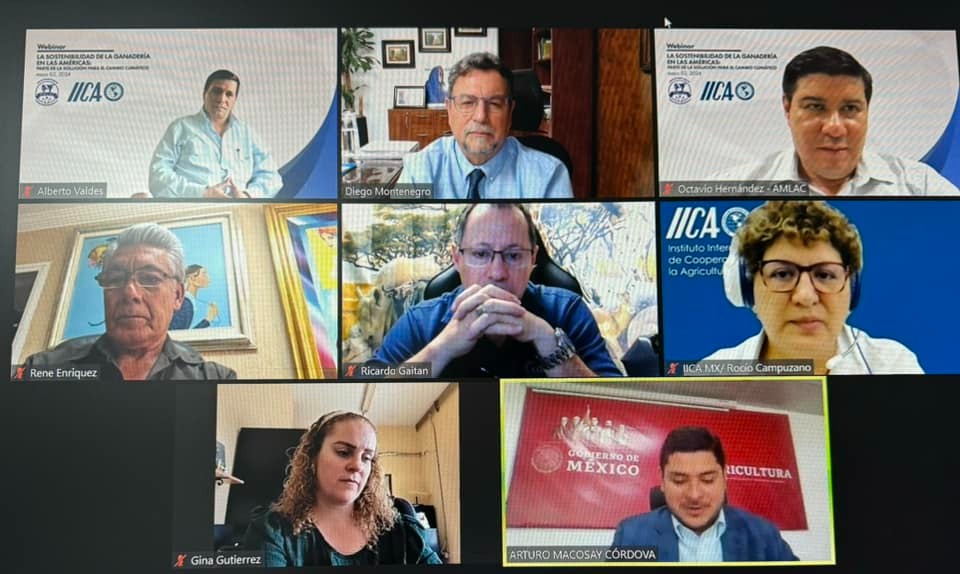Sustainable livestock farming is key to combating the effects of climate change and hunger in the Americas

Mexico City, May 10, 2024 (IICA ). Diego Montenegro, the Representative of the Inter-American Institute for Cooperation on Agriculture (IICA) in Mexico, emphasized the fact that the Americas play a strategic role in supplying high-value animal protein, reducing rural poverty, and preventing climate change.
In the webinar “The sustainability of livestock farming in the Americas: part of the solution to climate change,” organized by the Mexican Association of Milk Producers (AMLAC), Montenegro also stressed the importance of implementing more and better sustainable management practices in livestock farming, to make production more efficient and thus help reduce the effects of climate change.
He suggested a number of measures that can be adopted, such as the use of innovative technologies in the fields of genetics, nutrition, and animal health; as well as alternative energy sources, biodigesters, water and soil management, reforestation, and the use of biofuels in machinery, equipment and transportation.
He also said it was important to promote, stimulate and incentivize more research on, and the study of, the carbon balance on dairy farms in different regions of Mexico, and find mechanisms for cooperation between countries and producers to adapt good practices, strategies and projects.
“As production systems vary, the measurement of greenhouse gas (GHG) emissions must be adapted to them,” he said, pointing out that “it is possible to capture tens of billions of tons of carbon and methane annually to generate positive balances.”
Countries must pledge to reduce carbon emissions and comply with international agreements, Montenegro emphasized.
He added that, in pastoral systems, only emissions from the primary or farm sector should be attributed to the meat and milk chains and intensive production systems, differentiating between fossil fuel (CO2) emissions and biotic emissions.
More information:
Rocío Campuzano, Agricultural Health and Food Safety Specialist at IICA/Mexico.